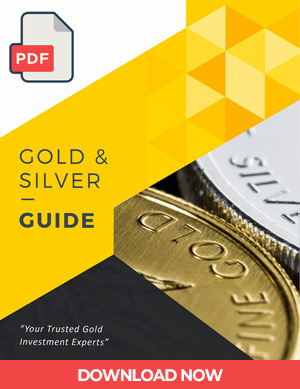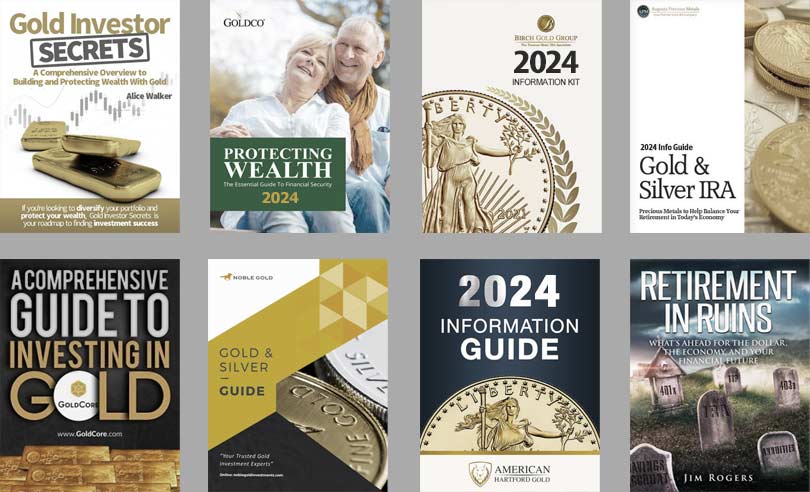Last week, the Federal Reserve launched a new payment processing system dubbed “FedNow.”
 Bullion.Directory precious metals analysis 24 July, 2023
Bullion.Directory precious metals analysis 24 July, 2023
By Stefan Gleason
President of Money Metals Exchange
Officials say FedNow will allow individuals and businesses to initiate instant funds transfers between banks. Critics warn that FedNow could be a prelude to central bank digital currency (CBDC) that threatens financial privacy and freedom.
Fund transfers between banks made through FedNow will settle directly in accounts at the central bank. Once Fed accounts become widely adopted and used for payments, critics fear it’s only one additional step to convert the “dollars” used in transactions into “FedCoin” – a proposed digital token to be issued directly by the central bank.
To be sure, similar arguments could be used to justify a CBDC as have been made with FedNow, e.g. it will improve the speed, efficiency, and reliability of payments.
However, the FedNow system is really just a major upgrade to the highly deficient ACH payment system that has limped along for decades, with its very slow clearing time, lack of fraud prevention, and other problems.
Concerns about FedNow appear to be overblown, and FedNow should not be conflated with totalitarian CBDC schemes. Here is what Emile Phaneuf of the American Institute for Economic Research writes on the risks of CBDCs:
Risks CBDCs present include the loss of settlement finality that comes with physical cash (as abandoning cash accompanies the push for CBDCs), loss of financial privacy, easy seizure of assets, loss of the ability to resolve problems at a local level with a commercial bank (as it would be doubtful that a central bank would come to be known for its customer service)…
…outright prohibition on spending or purchase limits with certain merchants or on certain products, and (perhaps most importantly) the paradigm shift from money as an exercise of economic freedom to one of social engineering by central banks and their respective governments.
The latter could manifest itself in various ways, including (to name just a few) negative interest rates (essentially a confiscation of one’s savings), the expiry of one’s money (with a date determined by the issuing central bank or its government) — or even discouraging the consumption of products like gasoline, plane tickets or red meat in order to enforce a climate agenda.
The weaponization of the monetary system for social engineering purposes has been in the works for decades. The abandonment of hard currency backed by physical gold and silver gave politicians and central bankers the power to manipulate the supply and value of the currency for their own ends.
Under a fiat currency regime, central planners arbitrarily try to determine how much inflation (i.e., currency depreciation) to inflict on the economy.
Under the Federal Reserve’s dual mandate, central bankers are supposed to ensure “price stability.” Instead, they openly flout that mandate, redefining “stable prices” as annual price inflation of 2%. Of course, the Fed is failing even to deliver on that objective by allowing inflation to run much hotter than 2%!
Those who wish to preserve their purchasing power over time while protecting their financial privacy should beware of central bankers’ new campaign to promote digital Fed accounts.
Hard money (gold and silver) held outside the banking system remains the soundest alternative to fiat currency in all its manifestations.
Stefan Gleason


Stefan Gleason is President of Money Metals Exchange, a precious metals dealer recently named “Best in the USA” by an independent global ratings group.
A graduate of the University of Florida, Gleason is a seasoned business leader, investor, political strategist, and grassroots activist. Gleason has frequently appeared on national television networks such as CNN, FoxNews, and CNBC and in hundreds of publications such as the Wall Street Journal, The Street, and Seeking Alpha.
This article was originally published here
Bullion.Directory or anyone involved with Bullion.Directory will not accept any liability for loss or damage as a result of reliance on the information including data, quotes, charts and buy/sell signals contained within this website. Please be fully informed regarding the risks and costs associated with trading in precious metals. Bullion.Directory advises you to always consult with a qualified and registered specialist advisor before investing in precious metals.









 Material provided on the Bullion.Directory website is strictly for informational purposes only. The content is developed from sources believed to be providing accurate information. No information on this website is intended as investment, tax or legal advice and must not be relied upon as such. Please consult legal or tax professionals for specific information regarding your individual situation. Precious metals carry risk and investors requiring advice should always consult a properly qualified advisor. Bullion.Directory, it's staff or affiliates do not accept any liability for loss, damages, or loss of profit resulting from readers investment decisions.
Material provided on the Bullion.Directory website is strictly for informational purposes only. The content is developed from sources believed to be providing accurate information. No information on this website is intended as investment, tax or legal advice and must not be relied upon as such. Please consult legal or tax professionals for specific information regarding your individual situation. Precious metals carry risk and investors requiring advice should always consult a properly qualified advisor. Bullion.Directory, it's staff or affiliates do not accept any liability for loss, damages, or loss of profit resulting from readers investment decisions.

Leave a Reply